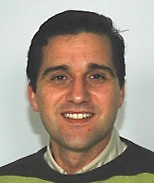
Tell us, what are your highlights from the last three years of coordinating SEAFOODTOMORROW?
It has been a pleasure coordinating such a highly motivated and dynamic team, whose strong collaborative efforts and teamwork has ensured the smooth and successful implementation of the project.
The COVID-19 pandemic has delayed the validation phase of our work, but I am confident we will overcome these constraints and achieve our objectives during the six-month extension granted by the European Commission. Plans for the three demonstration workshops and final event are well underway, and I think the top SEAFOODTOMORROW highlights are yet to come!
How has SEAFOODTOMORROW helped address current challenges in the seafood sector in Europe?
The team has developed 11 solutions, addressing several challenges faced by the seafood production and processing sectors in Europe. Our work addresses many cross-sectoral issues including food security and sustainability, quality and safety, transparency, and consumer trust. I could go on for days! You can read more about each of the solutions on the project website, but briefly our solutions are:
-
- Fortified farmed fish, using sustainably produced ingredients
- Optimized Integrated Multi-Trophic Aquaculture (IMTA) for sustainable co-production of fish, seaweed and shellfish
- Two new strategies to support shellfish producers in mitigating the negative impacts of Harmful Algae Blooms (HABs) and Norovirus at production sites
- Validated protocols on reducing energy and water during seafood processing
- Healthier seafood products and tailor-made meals for pregnant woman, elderly and youth using sustainable fish species
- Fast screening tools for the detection of xenobiotics and marine toxins
- Three validated strategies to remove or reduce, to a safe level for consumption, Norovirus, PSP and Listeria in seafood
- A DNA database and two tools (fast screening high-resolution analysis for salmon and digital droplet PCR for seafood in general) to support seafood authentication
- A new digital traceability system for tracking and tracing seafood as it progresses along the supply chain
- A benchmark and certification system to identify seafood products that meet SEAFOODTOMORROW quality and safety standards
- A personalized web tool and mobile app that provides consumers with transparent and accurate information on the nutritional benefits and risks, as well as environmental impacts of the seafood they choose to eat.
These solutions are currently being validated and their performance in addressing challenges in the sector will be demonstrated early next year (2021). The goal of the workshops is to transfer the knowledge generated during the last three years to key industrial stakeholders in France, Spain and Italy, and to discuss the policy implications of our results.
Already one of our solutions – a Mussel Soup recipe tailored for seniors – has been taken up by industry and will be brought to market, which is an excellent result for the project! We hope several more of our products will be taken up in the near future!
In your opinion, what does the future of seafood look like in Europe? What challenges will the sector face in the future?
The way the seafood industry is evolving, tackling sustainability and contributing to the circular economy, is extremely positive. I see a future where safer, healthier, higher quality and more diversified seafood products will become available for consumers.
Society has pushed the seafood industry to improve their processes, reduce carbon footprint and take care of the environment, and the industry has reacted very positively and responded to these challenges.
Nonetheless, as the sector establishes itself as a sustainable industry, it will continue to face new challenges including the need for higher production rates in sustainable aquaculture to cope with consumer demand, the competitiveness of prices with meat, the availability of new sources of sustainable ingredients to feed farmed seafood, the control of the production (e.g. diseases, parasites) with environmentally friendly tools, the need to implement adaptation measures to deal with climate change, the need to ensure a common global vision to manage seafood resources, by banishing unsustainable practices, and the need to involve society as a whole to pave the way towards trustworthy, healthy and safe seafood.
With continued support from the European Commission and innovative projects like SEAFOOD TOMORROW, I am sure we can address these challenges too.
What are your hopes and expectations for the last six months of the project? Do you have a message to SEAFOOD TOMORROW partners as the project draws to a close?
We live in a period of uncertainty due to COVID-19, and although physical meetings are not possible, we have strategies in place to ensure that all eco-innovative solutions will be validated and delivered to the end-users. I am confident that despite the restrictions and obstacles imposed upon us, we will achieve our goals.
It has been a pleasure and honor to coordinate such a project where all partners have been so deeply involved and committed to a common goal for a sustainable society and improved seafood sector. I have learnt a lot with this group of experts in the different trans- and multi-disciplinary fields, and established several friendships.
Thank you for your professionalism and dedication. I hope you will embrace new scientific challenges in Horizon Europe!
Dr Antonio Marques, SEAFOODTOMORROW Coordinator
Portuguese Institute for the Sea and Atmosphere (IPMA)
